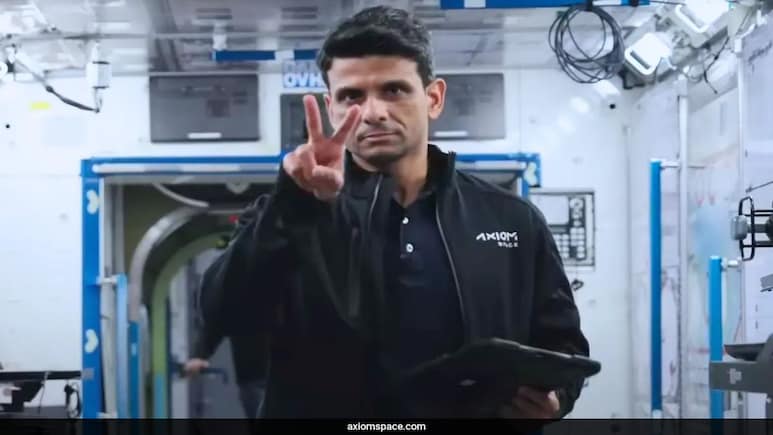
- Group Captain Shubhanshu Shukla experienced difficulty adjusting to Earth's gravity after 20 days in space
- Astronauts quickly adapt to microgravity by moving slowly to avoid causing damage on the ISS
- Shukla is the first Indian on the $150 billion ISS, with his mission costing India nearly $70 million
When Group Captain Shubhanshu Shukla returned to Earth after his historic 20-day space mission, he experienced a moment that was both humorous and deeply revealing. Sitting on his bed in Houston, working on his laptop, he casually closed it and let it go, expecting it to float beside him. Instead, it dropped to the floor. Luckily, the carpet cushioned the fall, and the laptop survived. But the incident marked a profound transition: the shift from microgravity back to Earth's gravitational pull.
This seemingly small mishap encapsulates the broader psychological and physiological journey astronauts undergo when they return from space. In microgravity, the brain rewires itself to accept floating objects as the norm. Letting go becomes second nature. But back on Earth, gravity reasserts itself, often with surprising consequences.
NDTV also asked American astronaut Commander Peggy Whitson, when rookie astronauts like Group Captain Shukla first arrive at the space station, do they end up causing any damage by moving around too fast, like bulls in a China shop?
"I was actually very impressed with how quickly these astronauts adapted to being in space," Mission Commander Peggy Whitson said.
"Before their arrival, I emphasised one key lesson: slow is fast. They really took that to heart. By moving slowly and deliberately, they avoided bumping into things or causing any damage. So no, they weren't bulls in a China shop; they were careful, thoughtful, and adapted beautifully to the microgravity environment."
Group Captain Shukla's story is not just about a laptop. It's about the process of unlearning space habits and relearning Earthly ones. He shared another striking moment: upon returning, he asked a colleague for a phone to take a picture. The moment he held it, he was stunned by its weight. A device he had used effortlessly for years now felt heavy and unfamiliar. This was gravity, reintroduced.

Group Captain Shukla is the first Indian to have visited the $150 billion orbiting space laboratory. Axiom Space, the private company that brokered this visit for NASA and ISRO, cost India nearly $70 million.
After approximately 433 hours, 18 days, and 288 orbits around Earth covering nearly 12.2 million kilometres since docking with the International Space Station (ISS), the Axiom Mission 4 (Ax-4) crew returned safely to Earth.
This would be about 32 times the distance between the Earth and Moon.
Group Captain Shukla is India's second astronaut after Wing Commander Rakesh Sharma, who flew to space in 1984 on an Indo-Soviet Mission.
For nearly 40 years, Group Captain Shukla had lived in Earth's gravitational environment. But just a few days in space were enough to alter his perception and motor responses. The body adapts quickly to microgravity, floating, manoeuvring, and functioning without the constant downward pull. Muscles and bones adjust, and the brain recalibrates balance and coordination.

Photo Credit: PTI
Returning to gravity, however, is a challenge.
Group Captain Shukla described the difficulty of finding balance, regaining footing, and performing everyday tasks that once required no thought. Thankfully, astronauts undergo a structured rehabilitation and recuperation program upon landing. Through guided exercises and protocols, they rebuild strength and coordination. Within three to four days, most astronauts feel nearly normal again, though the full recovery continues for weeks.
These experiences highlight the remarkable adaptability of the human body - and the equally remarkable need to reverse that adaptation. Space travel isn't just about learning to live without gravity; it's about learning to live with it again.
Group Captain Shukla's anecdotes offer a rare glimpse into the intimate realities of spaceflight. They remind us that while astronauts may soar beyond Earth, their return is just as profound. The journey back is not just physical - it's a reawakening to the forces that ground us. And sometimes, it begins with a laptop that doesn't float.
Track Latest News Live on NDTV.com and get news updates from India and around the world

